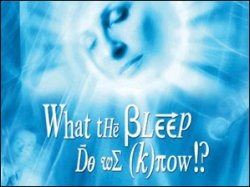Theosophy and Christianity
"Theosophy is an Eastern religion, isn't it---sort of like Hinduism or Buddhism?" That question is wrong in two important ways. First, Theosophy is not a religion at all, but a way of viewing human nature and the world that is compatible with the nondogmatic aspects of any religion. Second, Theosophy is no more Eastern than it is Western--it seeks for what is in common to all cultures and religions and attempts to complement East and West with each other.
Theosophists belong to many different religions: among them, Buddhism, Hinduism, Zoroastrianism, Islam, Judaism, and Christianity; and within Christianity to churches such as the Catholic, Methodists, Baptists, Episcapolian, Presbyterian, and many others. Theosophy presents the wisdom of the West to the East and the wisdom of the East to the West.
Theosophy Within Christianity
The word Theosophy, meaning "divine wisdom," designates an ancient outlook that recognizes within the many outward forms of religion an inner core shared by all of them. Theosophy and Christianity agree in their essence. Christianity provides a unique way of expressing the Wisdom Tradition of Theosophy, and Theosophy can enrich an understanding of the inner side of the Christian Way.
The New Testament itself frequently alludes to profound religious truths lying underneath the outer words of the biblical text. Frequently we come across such passages as "I speak God's hidden wisdom." We read that some things are beyond human comprehension, but "these it is that God has revealed to us through the Spirit" (1 Cor. 2.7-10).
The Apostle Paul goes on to tell recently converted Christians that he us unable to impart such wisdom because "indeed, you are still not ready for it, for you are still on the merely natural plane" (1 Cor. 3.2). Paul possessed a knowledge his followers could not yet receive or understand, which was tehrefore "hidden" from them.
Jesus himself said to his disciples, "To you the secret of the Kingdom of God has been given; but to those who are outside, everything comes by way or parables" (Mark 4.11012). Jesus made a clear distinction between the disciples whom he taught directly and "those who are outside."
St. Mark also relates that "when he was alone" Jesus told his disciples certain truths that were not given to the multitude. On another occasion Jesus said, "There is still much that I could say to you, but the burden would be too great for you now" (John 16.12). These unspoken truths are not recorded in scripture, but perhaps they are alluded to when Jesus appeared to his apostles after the Resurrection "and taught them about the Kingdom of God" (Acts 1.3).
Theosophy And Scripture
Theosophical interpretations of the Bible are in fact those in common use among biblical scholars today and have been in such use among learned Christian throughout the ages. To read the Bible literally is to deprive it of its deeper sense. For example, when Jesus calls himself "the Door," he is obviously using a figure of speech. Religious truths, especially the most important ones, require the use of figurative language such as metaphor, parable, and allegory.
Theosophists try to explore the ways in which great truths are expressed in the various religions of the world and to recognize the inner or hidden meaning in all religions. This does not mean that Theosophists have a direct insight into or an infalliable understanding of the various religions; like anyone on any subject, they can be mistaken. But Theosophy does provide a special way of looking at and appreciating scriptural and other texts,
The two main works of H.O. Blavatsky (one of the founders of the Theosophical Society), Isis Unveiled and The Secret Doctrine, contain many ideas that can help to elucidate scriptures. For example, the Eastern idea of Karma is evident in the Bible. The concept of reincarnation is implicit as an underlying assumption, which helps an understanding of some otherwise perplexing passages. Christ's life story can be seen as representing the birth, crucifixion, and resurrection of the spirit in all of us as we make the spiritual journey described in Theosophical literature.
The Bible
For educated Christians the Bible is indeed a special literature, but it is a literature. It is not a single book but a collection of works representing a variety of literary forms, some containing more profound religious truth than others. Some Christians do not esteem, for example, Esther or Leviticus as highly as the Psalms or the Gospels. Yet Esther and Leviticus belong to what Christians call the "canon" (that is, the officially recognized books) of the Bible. And all books of the canon reveal how people in the Judeo-Christian tradition have understood themselves, their place in the world, and their relationship to the greater Reality within and beyond the world.
Some biblical books are richer in Theosophical truths that others, but Theosophical methods and insights can throw light on any book of the Bible. Every word in the Bible in not infallibly true in its literal meaning--the letter killeth, but the spirit giveth life (2. Cor. 3.6)--but every word says something from which we can learn.
A Theosophical attitude toward the Bible is that it contains the divine Wisdom which Christianity calls the word of God. But it would also hold that not every sentence in it is of equal richness and value.
Evolution
Evolution, far from being opposed to religion, is at its heart. Evolution is implied in the first chapter of Genesis, for it took a whole "day" for God to create "the birds of the air," another for "the beasts of the earth," and so forth. Were not evolution God's way of producing life and everything else, he would have created everything instantly. The word "day" is merely a way of denoting a period of time, it has nothing to do with the units of time that happen to be in use now. Indeed, Genesis describes days and nights passing before the sun itself came into existence.
We human beings are a process within the evolutionary development of the universe. Christians believe that humanity has a special role to play in the process of the world, and Theosophy agrees. From a Darwinian standpoint, evolution is the adaptation of living forms to their environment, by which species survive or die out. Theosophy does not deny that process, but holds that evolution is a threefold process also involving the development of intellect and of spiritual realization,
Theosophy also holds that evolution is purposeful and directed toward greater sensitivity of forms, greater responsiveness of intellect, and greater awareness of spiritual unity. In Christian terms, evolution is God's method of creating, perfecting, and redeeming the world. Contemporary science, notably quantum physics, has more kinship with biblical Christianity than did the mechanistic physics of Newton, great as he was in his time. The universe as we know it today looks "more like a thought than a machine."
New Finds
Recent manuscript discoveries have shed new light on the Bible and on early Christian thought and practice. Among the famous twentieth-century discoveries are the Qumran or Dead Sea Scrolls and the Nag Hammadi Library, These documents do not radically alter what biblical scholars already knew; they do, however, provide additional evidence and details.
These manuscripts especially corroborate the influences of theosophical Wisdom Tradition upon Palestinian Judaism around the time of Jesus. Those influences were also expressed in one of the most important of the early Christian schools, that of Alexandria, the luminaries of which included Celment and Origen, and in a variety of other early gnostic and hermetic groups within Christianity, which later disappeared or went underground. The Qumran documents also show that brotherhoods and communities, in some ways similar to monastic orders, had developed by the time of Jesus, which were unknown in earlier Hebrew times.
The Thosophical Perspective
Theosophy, far from being inconsistent of incompatible with the Christian Way, is in fact its other side. Theosophy merits consideration by all who wish to make their Christian faith both more intelligible to their minds and more alive in their hearts. It agrees with St. paul that Christ is within us. It teaches people not to leave the religion in which they have heard God speak but, rather, to live it more fully and perceive it more clearly.
The emphasis in Christ's teachings on the love of God and of one's neighbor is also echoed by Theosophy. That love is not an emotion or a sentimental affection. it is rather what is called in Greek "agape," a recognition of a greater Reality in human experience and a concern for the welfare of others. In Theosophy it is called "altruism," a recognition that, as we and others are ultimately one, their good is also ultimately ours.
Those who take their stand in the eternal verities, on the inner or hidden aspect of Christianity, are like the man in the parable who "had the sense to build his house on rock" (Matt. 7.24). Such people can view without alarm the shifting sands of criticism and doubt that arise in each new age. Storms may come, winds may blow, but the house stands, for its occupants are no longer in bondage to the letter of the law. They hold to that hidden spiritual foundation of which external facts are but the sign and symbol. In possession of the Divine Wisdom, they know the truth which makes us free.
 The Power of Thoughts
The Power of Thoughts
Discover the power that your Thoughts and Emotions have upon you. Learn how you can empower yourself to live in the moment by controlling your thoughts and emotions, and guiding yourself the way that you want to be guided, rather than allowing modern society to tell you how to feel and what to think.
Spirit Science - Thoughts
Spirit Science Video Series
 What The #$*!
What The #$*!
Do We Know?!
"What The Bleep Do We Know?!" is a radical departure from convention. It demands a freedom of view and greatness of thought so far unknown, indeed, not even dreamed of since Copernicus. It's a documentary. It's a story. It's mind-blowing special effects. This film plunges you into a world where quantum uncertainty is demonstrated - where neurological processes, and perceptual shifts are engaged and lived by its protagonist - where everything is alive, and reality is changed by every thought.
Thoughts Create Reality - Water Molecules
The Law of Attraction - Article by Steve Pavlina